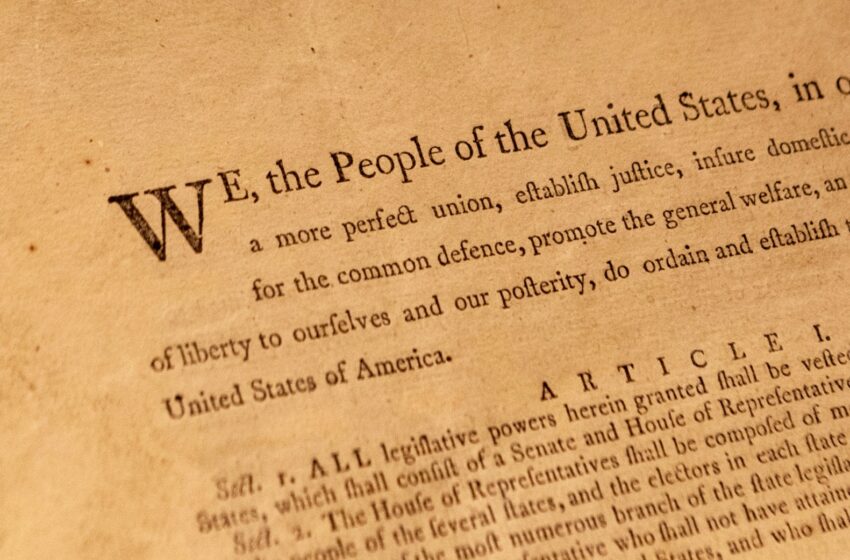Habeas Corpus: Everything that got deleted from the Constitution

Credit: Alexi Rosenfeld/Getty Images
When visitors accessed Congress.gov this week, they were shocked to find that crucial portions of the U.S. Constitution had mysteriously vanished. Among them was the habeas corpus clause, one of the oldest and most essential legal protections in democratic governance. While the Architect of the Capitol’s office blamed a coding error, the sudden disappearance of foundational legal text has raised serious alarm across legal and political communities.
Here’s a breakdown of everything that went missing, what these clauses mean, and why they matter more than ever.
Article I, Section 9: The Deleted Safeguards Against Government Overreach
The glitch removed Section 9 of Article I, which defines explicit limits on Congressional power. These limits are designed to protect individual freedoms and prevent authoritarian abuse. Here’s a breakdown of the key clauses that were briefly erased:
1. The Habeas Corpus Clause
“The Privilege of the Writ of Habeas Corpus shall not be suspended, unless when in Cases of Rebellion or Invasion the public Safety may require it.”
What it means:
Habeas corpus protects people from unlawful detention. It requires the government to justify the arrest or imprisonment of any individual before a judge. This clause ensures that no one can be jailed arbitrarily or indefinitely, a principle rooted in English common law and foundational to the U.S. legal system.
Its temporary removal from the official website triggered public panic, especially given that former President Donald Trump has expressed disdain for this safeguard in past remarks.
2. Ban on Bills of Attainder
“No Bill of Attainder or ex post facto Law shall be passed.”
What it means:
A bill of attainder is a legislative act that declares a person guilty without a trial. This clause prevents Congress from bypassing the courts and unilaterally punishing individuals or groups. In a healthy democracy, only the judicial system can decide guilt or innocence.
3. Prohibition of Ex Post Facto Laws
“No Bill of Attainder, or ex post facto Law, shall be passed.”
What it means:
An ex post facto law retroactively criminalizes an action that was legal when committed. The Constitution forbids this practice to protect citizens from being punished for acts that were not crimes at the time they occurred. It ensures predictability and fairness in law.
4. Restrictions on Capitation and Other Direct Taxes
“No Capitation, or other direct, Tax shall be laid, unless in Proportion to the Census or Enumeration herein before directed to be taken.”
What it means:
This clause originally restricted Congress from imposing direct taxes that were not proportionate to state populations. While later amended by the 16th Amendment (which allowed the income tax), it reflects historic concerns about unfair taxation.
5. Limits on Spending from the Treasury
“No Money shall be drawn from the Treasury, but in Consequence of Appropriations made by Law…”
What it means:
Congress must authorize all government spending by law, ensuring checks and balances on the executive branch. This clause reinforces that taxpayer funds cannot be spent secretly or without public accountability.
6. No Titles of Nobility
“No Title of Nobility shall be granted by the United States…”
What it means:
The U.S. government is forbidden from granting royal titles or special privileges. This clause reflects the Founders’ rejection of monarchy and reinforces the principle of equality under the law.
READ ALSO
Habeas Corpus: How Trump’s least favourite part of the Constitution got deleted
Fort Stewart shooting: What happened, who is suspect Quornelius Radford?
A Digital Glitch with Constitutional Consequences
The omission was the result of a “technical issue during a code migration”, not an intentional act of censorship. However, the missing sections persisted long enough to raise red flags about digital vulnerabilities in how the government maintains public legal documents.
Legal experts have emphasized that even temporary disappearance of such clauses can erode trust in institutions, especially during politically charged times.
Why It Matters: When Transparency Breaks, So Does Democracy
Whether accidental or not, the brief deletion of Article I, Section 9 is a reminder of how fragile public access to foundational rights can be in a digital-first era. It also highlights how ordinary citizens, journalists, and watchdogs must remain vigilant.
The sections that vanished aren’t obscure legal trivia, they are the guardrails of American freedom, and their absence, however brief, cannot go unnoticed.

